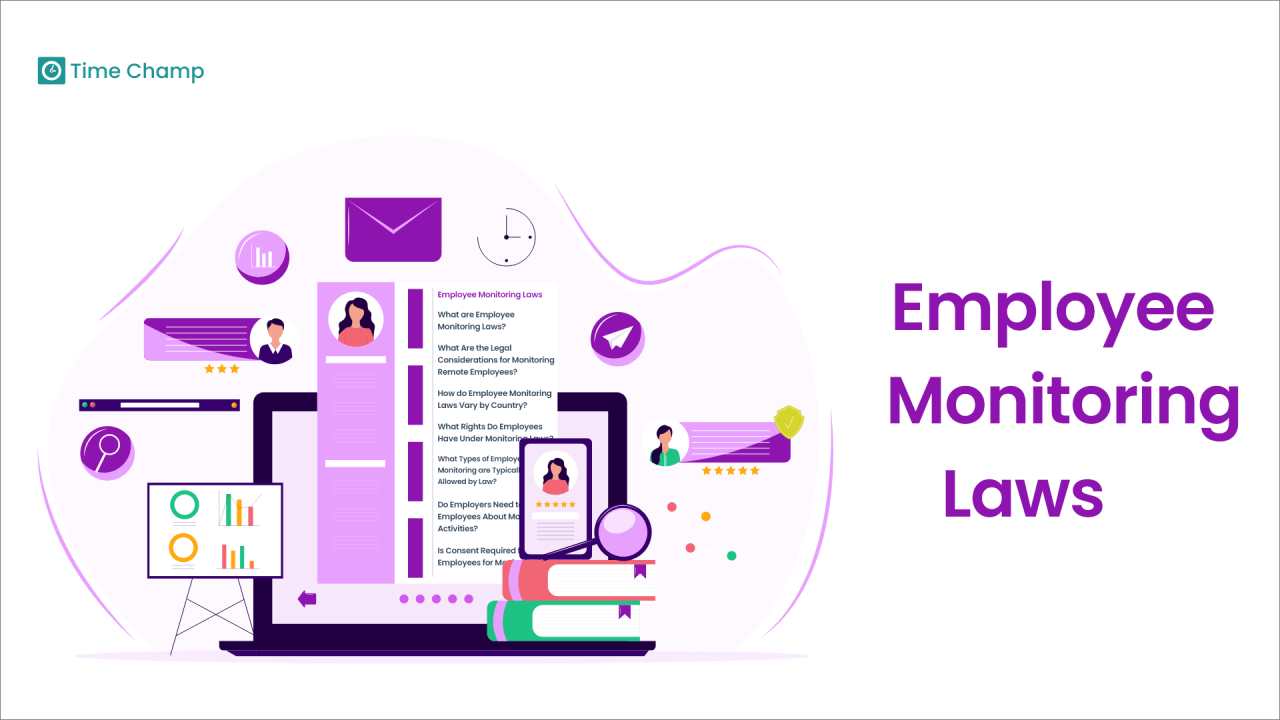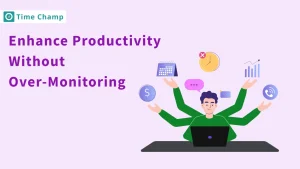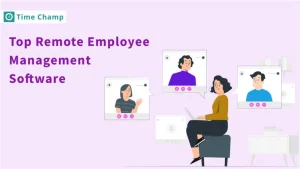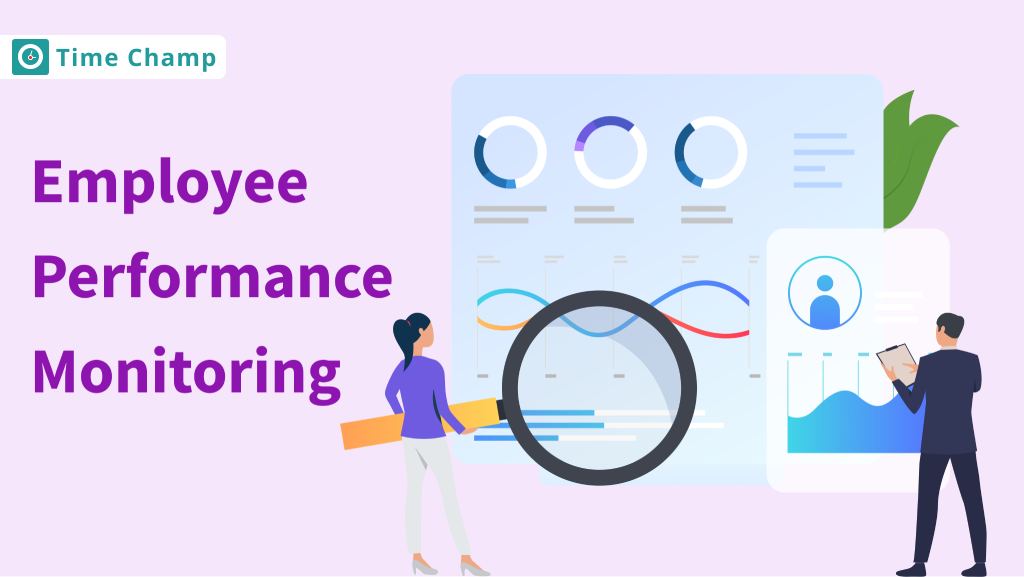In a world where technology is embedded in most aspects of our work, it is more important than ever to know the legalities of monitoring activities. Whether you are an employer who wants to establish or adjust the monitoring policy, or an employee who wants to know more about rights and privacy, it is not easy to find your way through this area. In this blog, we discuss the most common questions about employee monitoring laws and give you clear answers so that you can make the right decision. Let’s start and untangle it step by step!
What are Employee Monitoring Laws?
Employee monitoring laws are the rules and legal requirements that dictate how employers can track and assess an employee’s performance in the workplace. These laws are intended to address employees’ rights to privacy while ensuring that business organizations have the right to protect their interests and maintain productivity.
Employee monitoring can be defined as several practices including computer monitoring, email monitoring, video surveillance, and location tracking. Due to potential privacy concerns, regulations are in place to ensure these practices are conducted properly and to prevent the misuse of employee information.
What Legal Concerns Should Be Considered When Monitoring Remote Workers?
- Transparency and Notice: Employers must ensure that the employees are informed of the monitoring done on them, especially when working from home. This involves informing the employees of what will be measured, how it will be measured, and why it will be measured. The monitoring practices are documented in policies and procedures so that the employees are informed of the same.
- Consent: Generally, the employees must consent before they can be monitored. Consent can be through employment contracts that contain consent provisions or by making sure that the employees are okay with the monitoring provisions.
- Purpose Limitation: It should be done for business-related purposes such as performance evaluation, protection of organizational information, and compliance with organizational policies and the law. The level of monitoring must be in proportion to these objectives and cannot be intrusive in a way that infringes on people’s rights.
- Data Protection and Privacy: Employers also must ensure that the data collected through monitoring is not disclosed to or stolen by others. Apply data minimization by collecting only the data required for the stated purpose and avoiding excessive data collection.
- Compliance with Local and International Laws: Employers must ensure that the monitoring they conduct is legal in the country and the state where they are practising it. Monitoring laws vary from country to state. This includes being conscious of the differences in the jurisdictions and being informed that there are other regulations when the employees are working in other countries or regions.
How do Employee Monitoring Laws Vary by Country?
Yet, the law on employee monitoring differs from one country to another. Now, let us discuss these laws and compare them across the world.
-
United States: Laws vary by state. Key acts include the Electronic Communications Privacy Act (ECPA) and the Computer Fraud and Abuse Act (CFAA).
-
Canada: Governed by the Personal Information Protection and Electronic Documents Act (PIPEDA) and provincial privacy laws.
-
United Kingdom: The Data Protection Act 2018 and the UK General Data Protection Regulation (GDPR).
-
European Union: GDPR applies across member states, regulating employee monitoring and data protection.
-
China: The Cybersecurity Law and the Personal Information Protection Law (PIPL).
What Rights Do Employees Have Under Monitoring Laws?
Employee monitoring is a sensitive topic in the modern workplace. Employers may have legitimate reasons for monitoring, but it is equally important to look at the rights of the employees. Both employees and employers must be aware of these rights. These rights are essential to ensure that the employees are healthy and productive in their workplace. Now, it is important to explore the major rights that employees have under monitoring laws.
- Right to Be Informed: The employees should be informed about what is being monitored, how it is being done, and why it is being done. This makes everything clear, and no one can take undue advantage of the other.
- Right to Consent: In most cases, employers require prior consent before engaging in any monitoring activities. Consent is normally obtained in writing through a policy or an agreement.
- Right to Privacy: It should not invade other areas of the employee’s life that are not connected to work. Employers should not interfere with the private lives of their employees.
- Right to Access Data: This right enables employees to verify the information and to find out which aspects of their activities are being monitored. Transparency in data collection fosters trust and allows employees to challenge or clarify any concerns with the data.
- Right to Redress: In case the employees feel that their rights have been infringed, they can report to the authorities or seek legal redress. It should be clear how such matters are supposed to be dealt with.
What Types of Employee Monitoring are Typically Allowed by Law?
In the case of monitoring employees, it is important to know what is legal. It ensures compliance and builds credibility. In general, laws permit supervision. However, they are accompanied by certain rules and regulations to safeguard the privacy of individuals. Knowledge of these allowances will help you deal with employee monitoring effectively. Now, let’s look at the kinds of monitoring that are usually permitted by law.
-
Email and Internet Usage: Supervising work-related e-mail and internet usage is generally allowed.
-
Phone Calls: Supervising work phone calls, especially when the employee is informed or when the call is made using the company’s equipment.
-
Video Surveillance: Recording of activities in public areas such as the lobby and corridors is permitted but not in private areas such as restrooms.
-
Keystrokes and Mouse Clicks: Monitoring of keystrokes and mouse clicks on the company equipment is permissible if the employees are informed about it.
-
Location Tracking: The use of GPS tracking in company cars or mobile employees is usually allowed provided the employees are informed.
Do Employers Need to Inform Employees About Monitoring Activities?
Yes, employers usually must inform employees about monitoring. Being upfront about monitoring activities helps build trust and ensures compliance with legal standards. Most places require that employees are aware of any surveillance or tracking taking place. It’s important to stay updated on local laws to make sure you’re following the rules.
Is Consent Required from Employees for Monitoring?
Yes, consent is usually one of the conditions that must be met before employees can be monitored. Most laws demand that employers disclose such monitoring to the employees. They also must obtain the consent of the employees before engaging in surveillance. This process makes everything balanced. It makes sure that you adhere to the privacy laws. It is advisable to check the local rules to determine what is required in this case. This will assist you in avoiding legal issues and ensure that your workplace is healthy.
What are the Potential Consequences for Employers Who Violate Monitoring Laws?
Breaking monitoring laws is not good news for employers as it comes with some serious consequences. Here are a few potential consequences:
-
Fines and Penalties: Violation of the rules entails severe fines and legal penalties.
-
Lawsuits: Workers can sue for invasion of their privacy or dismissal if the monitoring was unlawful.
-
Reputational Damage: Legal problems are negative to the company’s reputation and may cause the employees and consumers to lose confidence in the company.
-
Operational Disruptions: Legal issues can affect business activities and therefore affect the efficiency of the business.
To reduce these risks, follow the laws on monitoring and adhere to them.
Can a Company’s Computers be Tracked Legally?
Yes, it’s legal to track company-owned computers, and here’s why:
-
According to the Electronic Communications Privacy Act (ECPA), any system provided by the company is considered company property.
-
This means employers have the right to monitor what employees do on these computers. This includes keeping an eye on downloads, files, documents, idle and active time, and internet usage.
-
Even if employees are using company computers remotely, employers can still supervise their activities appropriately.
By staying transparent and following these legal guidelines, companies can effectively monitor their computers while respecting privacy and maintaining compliance.
Can Employee Internet and Social Media Activities be Tracked Legally?
Yes, it is legal for companies to monitor their employees’ internet and social media usage under the laws of Electronic Communications Privacy Act (ECPA). This is usually the case because employees may require the use of the internet and social media for work-related activities, but this may also result in browsing other unrelated activities. Most laws allow organizations to monitor the amount of time that an employee spends on the internet and the sites that he or she visits. Also, it is possible to block specific websites and applications for employees and other users of the business’s network. Most companies have strict rules and regulations to restrict the use of social media and the internet at the workplace to avoid cases of employees being distracted.
Is Moonlighting Policy Important in Employee Tracking?
Yes, a moonlighting policy is important in employee monitoring. It assists organizations in tracking and supervising employees who may be serving other organizations or have other businesses while in their organizations. Thus, with the help of a clear moonlighting policy, it is possible to prevent outside activities from affecting the primary job or creating conflicts of interest. This policy also ensures that there is order and protection of information from employees, hence making it an important tool in managing employees.
Is Monitoring Screen Activity and Keystrokes Legal?
Yes, in many countries, employers can monitor the screen’s contents, and the keys pressed on the keyboard. So long as there is a workplace policy in place, organizations can monitor activities on their systems. This helps ensure that monitoring is done transparently and by the set standards
Monitoring the screen activity and the keystrokes to prevent leakage of information, ensure productivity, and prevent misuse of organizational resources. However, such measures are taken responsibly, concerning the privacy rights of the employees and the local labor laws.
Is It Legal to Monitor Employees’ Personal Computers?
Yes, it is legal to monitor the employees’ personal computers when they are used for work purposes, especially if the company has a BYOD policy. This policy should state how personal devices can be used for work and any monitoring that will be done. Employers must make sure that the monitoring is only for work-related activities and the employees must be aware of it and must have agreed to it. Compliance with privacy laws and having a clear BYOD policy also guarantees that the monitoring processes are legal and do not infringe on the employees’ rights to privacy.
Can Employers Legally Track Employee Emails and Phone Conversations?
Yes, under Indian Employment and Labour Law, employers can monitor the emails and phone calls of their employees, but there are some conditions to be met. Any message created, sent, or received through a company-owned system is the property of the company, so employers have the right to access it if necessary. In the case of phone conversations, companies are permitted to tap calls made on office telephones for legal reasons like implementing organizational policies or security. The legal aspects of the monitoring practices must be considered, and the rights of the employees must be respected to be able to control communication and do it ethically.
Employee Monitoring Policy- Mandatory or Not?
Yes, it is legal to have an employee monitoring policy in many jurisdictions including India. This policy makes it possible to know what will be monitored, why it will be monitored and how it will be monitored. It should be part of the privacy policy or the employee handbook and guarantee compliance with the legal requirements and the rights of the employees about the management and protection of data.
Can Employers Use Monitoring Data to Sue Employees?
Yes, employers can use monitoring data to justify legal proceedings against employees if the data was collected and used legally and by the company’s policies. Supervisory data can be useful in cases of misconduct, policy, or contractual breach. However, the monitoring practices should be legal and should not raise any legal issues to avoid legal issues over the admissibility of the evidence. It is crucial to follow the privacy regulations and document the process of data collection to use this information in legal cases properly.
What are the Best Practices to Implement Employee Monitoring Laws?
Here are the best and ethical practices that should be followed when enforcing the laws on employee monitoring:
-
Develop Clear Policies: Set specific guidelines on what is to be evaluated, the purpose of the evaluation, and the process of the evaluation.
-
Inform and Educate: Make sure the employees are informed of the monitoring procedures the extent of their knowledge of the same and their rights.
-
Obtain Consent: Make sure that the employees agree to be monitored before they are monitored.
-
Limit Scope: To avoid a violation of employee rights, the monitoring should be focused on work-related activities only.
-
Ensure Compliance: It is important to make sure that one knows the laws and regulations that apply to the practices to avoid the violation of the law.
-
Protect Data: Ensure that enough precautions are put in place to ensure that the collected data cannot be accessed by other people.
These practices help make monitoring employees efficient, legal, and ethical.
How Can Employers Understand Employee Monitoring Laws?
To understand the laws regarding the monitoring of employees, employers should seek legal advice. They should be aware of the local regulations and update themselves with the legalities. Here are the steps that will ill assist you in comprehending the laws on employee monitoring:
-
Consult with employment law attorneys for specific recommendations.
-
Look into laws as observing laws may be different depending on the area.
-
Check for updates sometimes to conform to the current standards.
-
Participate in continuing education to increase knowledge of legal expectations.
-
We recommend using only credible sources like government agencies and professional organizations to get the information.
-
Consult with legal consultants to ensure that the policies being implemented are legal and fit the organization.
Read more about Understanding Employee Monitoring Laws
Is It Mandatory for Employers to Safeguard Sensitive Employee Information?
Yes, employers must protect the personal information of their employees. Legal and regulatory standards demand that personal and sensitive information be accorded adequate security measures to minimize the risks of intrusion or violation. Employers should therefore make sure that they respect and protect the information of their employees not only because it is the law but also because it is important for the organization.
Conclusion
Understanding the laws regarding employee monitoring to avoid legal consequences and create a credible working environment. Employers should be able to monitor their employees properly while protecting their privacy through issues like transparency, consent, and data protection. To avoid legal issues and ensure a healthy workplace, one must be updated and follow the best practices.
Time Champ makes it easy to handle employee monitoring by adhering to legal standards. It assists in tracking activities in a way that is transparent and efficient and answers questions about monitoring practices that are often raised while considering the legal requirements of privacy.
Ready to implement ethical and compliant employee monitoring?
Discover Time Champ—employee monitoring software designed to keep you compliant and boost productivity.
Discover more about Time Champ





